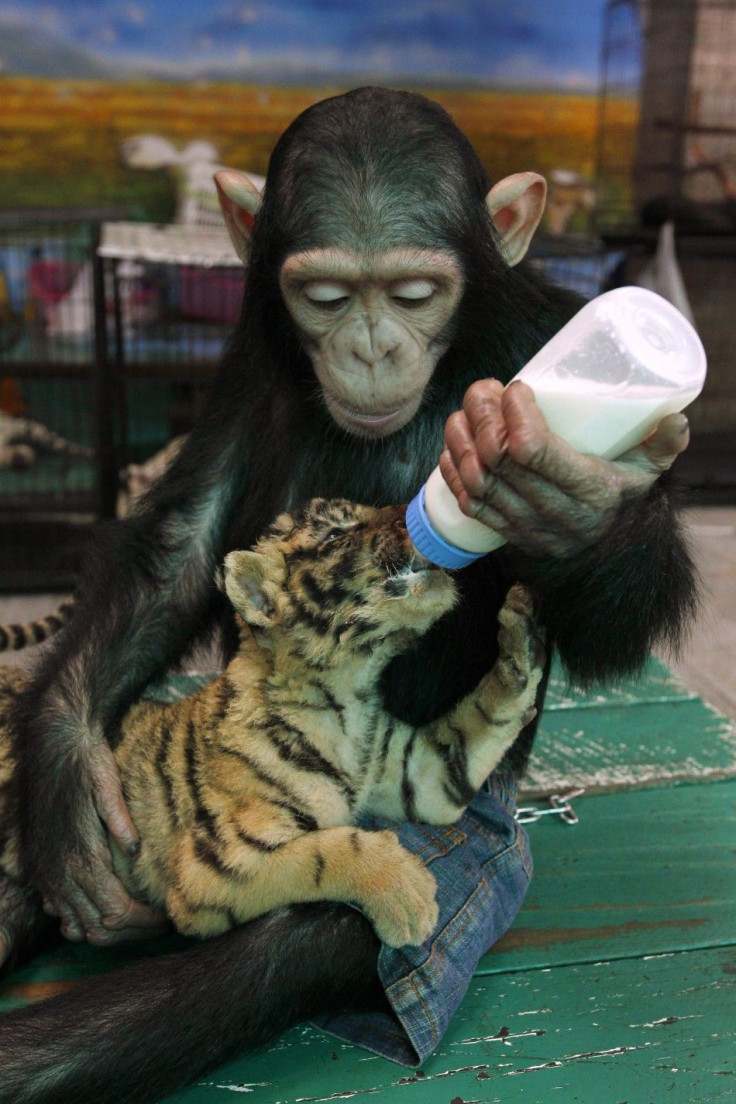Chimpanzees Can Be Nice and Generous, Study Says

Chimps can be nice and even generous when they have the opportunity, a new study suggests. Researchers at the Yerkes National Primate Research Center of Emory University were skeptical of earlier research in the area, prompting them to come up with a simpler experiment to test altruism in primates.
"I have always been skeptical of the previous negative findings and their over-interpretation," co-author Frans de Waal said in a university press release. "This study confirms the prosocial nature of chimpanzees with a different test, better adapted to the species."
Researchers used a bucket filled with tokens of two different colors to measure niceness among 7 female chimps. They wrapped banana pieces in paper that made noise when opened and used them as rewards.
Picking up a certain color meant a reward for the participant. Picking up the other color meant a reward for the participant and for the other chimp in a neighboring cage.
The participating chimps nearly always selected the token that would get a reward for both, especially when the other chimp waited patiently.
Victoria Horner, the study's lead researcher, was greatly intrigued by this particular finding.
"It was far more productive for partners to be calm and remind the choosers they were there from time to time," she said.
The researchers believe this study shows that primate generosity is based on empathy.
"Since empathy is an old mammalian trait, there is no reason why the sort of altruism we describe should be unique for the primates," de Waal told Discovery News.
© Copyright IBTimes 2025. All rights reserved.





















